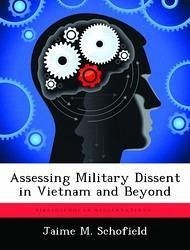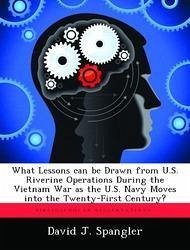Nicht lieferbar

Assessing Military Dissent in Vietnam and Beyond
Versandkostenfrei!
Nicht lieferbar
This study comprises an analysis of the legitimacy of dissent by Admiral Sharp and General Westmoreland following the Vietnam War. The author does this by using Huntington's theories of objective civilian control of the military and his four different cases of dissent to devise a two-step dissent analysis model. The model addresses first, whether the military officer has a valid message of dissent, and second, whether there are extenuating circumstances to justify going directly to the public with the dissent rather than using more traditional and appropriate avenues. The conclusion is that Sh...
This study comprises an analysis of the legitimacy of dissent by Admiral Sharp and General Westmoreland following the Vietnam War. The author does this by using Huntington's theories of objective civilian control of the military and his four different cases of dissent to devise a two-step dissent analysis model. The model addresses first, whether the military officer has a valid message of dissent, and second, whether there are extenuating circumstances to justify going directly to the public with the dissent rather than using more traditional and appropriate avenues. The conclusion is that Sharp and Westmoreland's dissent was inappropriate because they criticized President Johnson on political grounds in which they did not have the requisite expertise. The study then briefly addresses recent dissent during Operation Iraqi Freedom. Again, the study found that the dissent presented failed to meet the criteria for legitimacy. The retired generals challenged Secretary of Defense Rumsfeld on political grounds. Additionally, there was not a sufficiently strong case for going directly to the public rather than using their chain-of-command while still on active duty.












